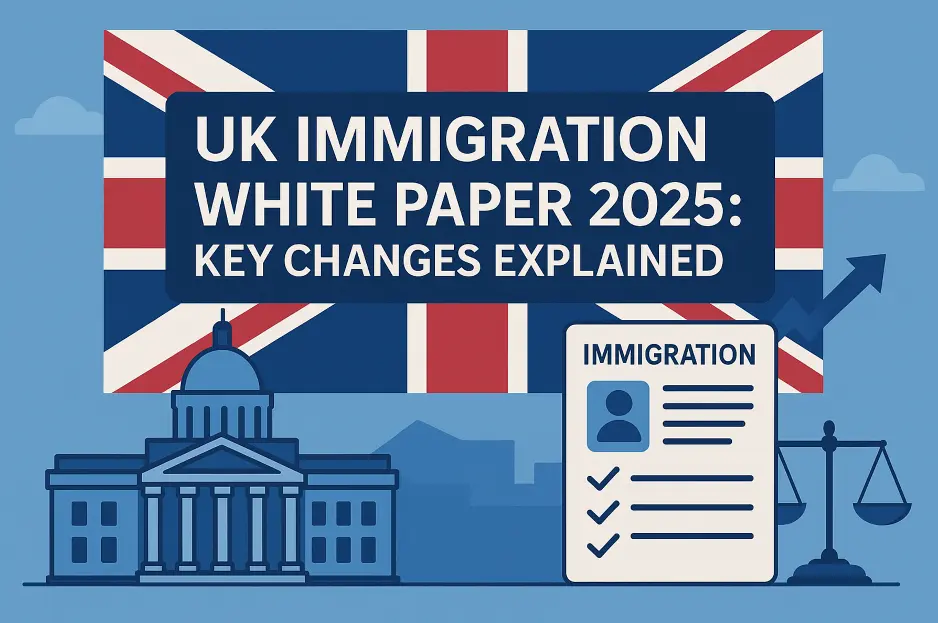By: Usman Chaudhary
On 12 May 2025, the UK Government published a comprehensive white paper titled Restoring Control over the Immigration System, setting out a new vision for how immigration will be managed in the years ahead. The proposed reforms mark a significant tightening of the UK’s immigration framework, with the central aim of reducing net migration and reinforcing public confidence in the system. This blog post outlines the core measures announced in the white paper and their likely impact on migrants, employers, students, and families.
One of the most prominent changes is a complete overhaul of the Skilled Worker visa route. The qualification threshold has been raised to degree-level roles (RQF Level 6), effectively limiting the route to highly skilled professions. The minimum salary requirements have also increased substantially, with no reduced thresholds for shortage occupations—ending what had previously been a route for care workers and entry-level roles to be sponsored. The Immigration Skills Charge payable by sponsors has also been increased by over 30%, placing a higher financial burden on UK employers who depend on overseas talent.
The white paper introduces a phased closure of the care worker visa route, with no new applications accepted beyond 2028. Employers in the adult social care sector will be expected to invest in domestic recruitment and training initiatives before turning to overseas labour. This policy shift is framed as a move to create sustainable workforce strategies within the UK, though it has raised concerns about ongoing staffing pressures in the care sector.

For international students and graduates, the changes are equally impactful. The Graduate visa route will now allow only 18 months of post-study stay, down from the current two-year allowance. In parallel, a new institutional compliance regime is being launched, where universities will be assessed and categorised based on visa compliance and course completion rates. Additionally, the government is consulting on a 6% levy on income derived from international student tuition fees, with a view to reinvesting in domestic skills training.
Significant amendments have also been proposed to the settlement and citizenship pathway. The qualifying period for settlement (Indefinite Leave to Remain) will be extended from five years to ten years, and applicants will be subject to more stringent English language requirements. Moreover, the government is introducing tougher deportation policies, permitting removal of foreign nationals convicted of minor offences—an approach likely to spark legal and human rights debate.
In terms of enforcement, the white paper commits to transitioning the UK to a fully digital immigration system. This includes the introduction of eVisas, enhanced monitoring mechanisms, and increased penalties for employers found to be in breach of sponsorship duties. These digital reforms are designed to streamline operations and prevent abuse of the system, but they will also require sponsors and migrants to become more technologically adept in managing their immigration affairs.
The government’s rationale behind these reforms is to bring net migration down by at least 100,000 per year by 2029, targeting an overall figure of around 300,000. Prime Minister Keir Starmer has justified the measures as necessary to protect public services, safeguard social cohesion, and ensure that immigration policy better serves the national interest. While the business community and higher education providers have expressed concerns about labour shortages and economic impact, public opinion appears largely in favour of the proposed changes.
In summary, the 2025 white paper sets out a marked shift toward a more restrictive and domestically focused immigration system. While it aims to streamline high-skilled migration and encourage investment in local talent, it will also place additional pressure on sectors historically reliant on international recruitment. As immigration advisers and legal professionals, we must remain vigilant, adapt our strategies, and guide our clients through this changing legal landscape with accuracy and care.
To discuss how these changes may affect your visa status or sponsorship plans, feel free to contact us for a consultation.

